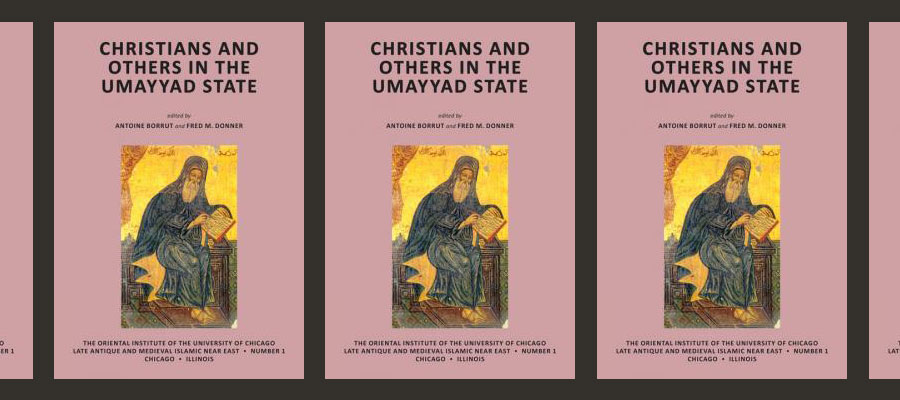Antoine Borrut and Fred M. Donner, eds. Christians and Others in the Umayyad State. LAMINE 1. Chicago: The Oriental Institute, 2016.
From The Oriental Institute
he papers in this first volume of the new Oriental Institute series LAMINE are derived from a conference entitled “Christians, Jews, and Zoroastrians in the Umayyad State,” held at the University of Chicago on June 17–18, 2011. The goal of the conference was to address a simple question: Just what role did non-Muslims play in the operations of the Umayyad state? It has always been clear that the Umayyad family (r. 41–132/661–750) governed populations in the rapidly expanding empire that were overwhelmingly composed of non-Muslims — mainly Christians, Jews, and Zoroastrians — and the status of those non-Muslim communities under Umayyad rule, and more broadly in early Islam, has been discussed continuously for more than a century. The role of non-Muslims within the Umayyad state has been, however, largely neglected. The eight papers in this volume thus focus on non-Muslims who participated actively in the workings of the Umayyad government.
